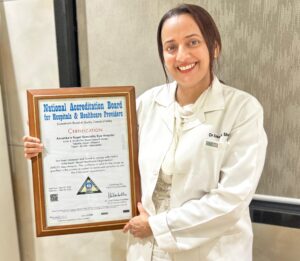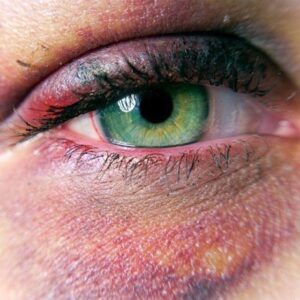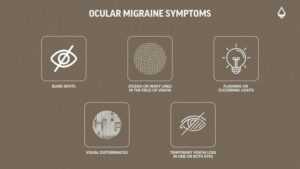
Anushka Super Speciality Eye Hospital
Call: 90044 44422 / 99213 44422 | Timings : 8.30 a.m to 5.30 p.m (Mon-Sat) | Add: Shri Swami Samarth Soc, Kaneri Dhamankar Naka, Bhiwandi




Accredited for Quality Care
The Importance of Regular Eye Check-ups: Preventing Eye Diseases Before They Progress
anushka
25 September 2025
Your eyes are among the most valuable organs in your body, allowing you to experience the beauty of the world. Yet, many people tend to neglect regular eye check-ups, assuming that if their vision seems fine, their eyes are healthy. However, this assumption can be dangerous. Many eye diseases progress silently, showing no symptoms in early stages, and by the time noticeable problems arise, irreversible damage may already have occurred. This is why regular eye check-ups are essential for maintaining good eye health and preventing serious conditions.
Why Regular Eye Check-ups Matter?
An eye check-up does much more than just update your eyeglass prescription. It is a comprehensive evaluation of the overall health of your eyes, enabling early detection of potential problems before they develop into major issues. Here are several reasons why regular eye examinations are crucial:
1. Early Detection of Eye Diseases
Many serious eye conditions like glaucoma, diabetic retinopathy, and age-related macular degeneration (AMD) do not show early symptoms.
- Glaucoma is known as the “silent thief of sight” because it gradually damages the optic nerve without obvious symptoms until advanced stages.
- Diabetic Retinopathy affects people with diabetes, leading to vision loss if left undetected and untreated.
- AMD affects central vision, crucial for reading and driving, and develops slowly.
An eye specialist can detect these problems early through specialized tests, even before symptoms appear.
2. Prevent Vision Loss
Once detected early, most eye diseases can be managed effectively with treatment, preventing permanent vision loss. Regular check-ups allow timely interventions, such as laser treatment for glaucoma or medication for retinal disorders, which can significantly slow disease progression.
3. Update Prescription
Your vision can change over time. A regular eye check-up ensures that your eyeglasses or contact lens prescription is up to date, providing clear vision and reducing eye strain.
4. Assess Eye Health in Systemic Diseases
An eye examination can reveal signs of systemic diseases like high blood pressure, diabetes, or high cholesterol. Changes in blood vessels and the retina may indicate that these conditions are poorly controlled and need medical attention.
5. Improve Quality of Life
Good vision improves safety and overall well-being. Correcting refractive errors, early treatment of diseases, and receiving lifestyle advice help people live an active, independent life, especially as they age.
How Often Should You Get an Eye Check-Up?
The frequency of eye check-ups depends on your age, health condition, and risk factors:
- Children: First eye test by age 3, and annually thereafter, especially if there are concerns about vision or development.
- Adults (18-60 years): Every 2 years if no symptoms or risk factors are present. Annual check-ups if wearing glasses, having diabetes, high blood pressure, or family history of eye diseases.
- Seniors (60+ years): Annual eye exams, as age increases the risk of cataracts, glaucoma, and AMD.
For high-risk patients, such as diabetics or those with a family history of glaucoma, eye check-ups may be recommended more frequently.
What Happens During an Eye Check-Up?
A comprehensive eye examination includes several steps to evaluate both vision and overall eye health:
1. Visual Acuity Test
Measures how clearly you can see at various distances using an eye chart.
2. Refraction Test
Determines the correct prescription for eyeglasses or contact lenses.
3. Intraocular Pressure (IOP) Test
Checks for glaucoma by measuring pressure inside the eye using a tonometer.
4. Slit Lamp Examination
A microscope with a bright light is used to examine the front part of the eye (cornea, iris, lens).
5. Retinal Examination (Ophthalmoscopy)
The doctor examines the retina, optic nerve, and blood vessels using special lenses and light, often after dilating the pupil.
6. Visual Field Test
Measures peripheral (side) vision to detect early signs of glaucoma or neurological disorders.
Common Eye Problems Detected Early
1. Refractive Errors
Myopia (nearsightedness), hyperopia (farsightedness), astigmatism, and presbyopia are easily detected and corrected with lenses.
2. Cataract
Clouding of the eye lens can develop slowly with age. Early detection allows timely surgical treatment to restore vision.
3. Glaucoma
Early diagnosis helps preserve the optic nerve by reducing intraocular pressure with medication or laser therapy.
4. Diabetic Retinopathy
Early signs of damage to the retina in diabetic patients can be detected before vision is affected, allowing timely treatment.
5. Age-related Macular Degeneration (AMD)
Early detection helps in managing symptoms and slowing progression with medical therapy or laser treatment.
Why Choose Dr. Anushka’s Super Speciality Eye Hospital for Your Eye Check-Up?
Dr. Anushka’s Super Speciality Eye Hospital in Bhiwandi is proud to offer advanced eye care services with a patient-first approach.
- We are NABH-accredited, ensuring the highest quality and safety standards.
- Our hospital is HOTA-approved, enabling specialized procedures like corneal transplants.
- We use state-of-the-art diagnostic tools for comprehensive eye examinations.
- Our experienced team of eye care specialists is committed to early disease detection and patient education.
- Despite being in a rural area, we provide world-class eye care services with advanced technology.
At Dr. Anushka’s Hospital, our priority is that the patient must not suffer. We believe in delivering compassionate, high-quality care and empowering patients with knowledge about their eye health.
Tips for Maintaining Good Eye Health
- Eat a Balanced Diet: Foods rich in Vitamin A (carrots, spinach), Omega-3 fatty acids (fish), and antioxidants help maintain eye health.
- Limit Screen Time: Avoid excessive screen time to reduce eye strain and prevent digital eye strain.
- Protect Eyes from UV Light: Always wear sunglasses with UV protection outdoors.
- Stay Hydrated: Keep your eyes moist and healthy.
- Manage Chronic Conditions: Control diabetes, high blood pressure, and cholesterol with regular check-ups.
- Avoid Smoking: Smoking increases the risk of AMD and cataracts.
- Practice Good Hygiene: Always wash hands before touching your eyes or contact lenses.
Conclusion
Regular eye check-ups are essential for preserving your vision and preventing irreversible damage caused by silent eye diseases. Early detection and timely treatment can make a huge difference in maintaining eye health and quality of life.
Dr. Anushka’s Super Speciality Eye Hospital is dedicated to providing top-quality eye care services with advanced technology, experienced specialists, and a commitment to patient well-being.
Recent Posts


